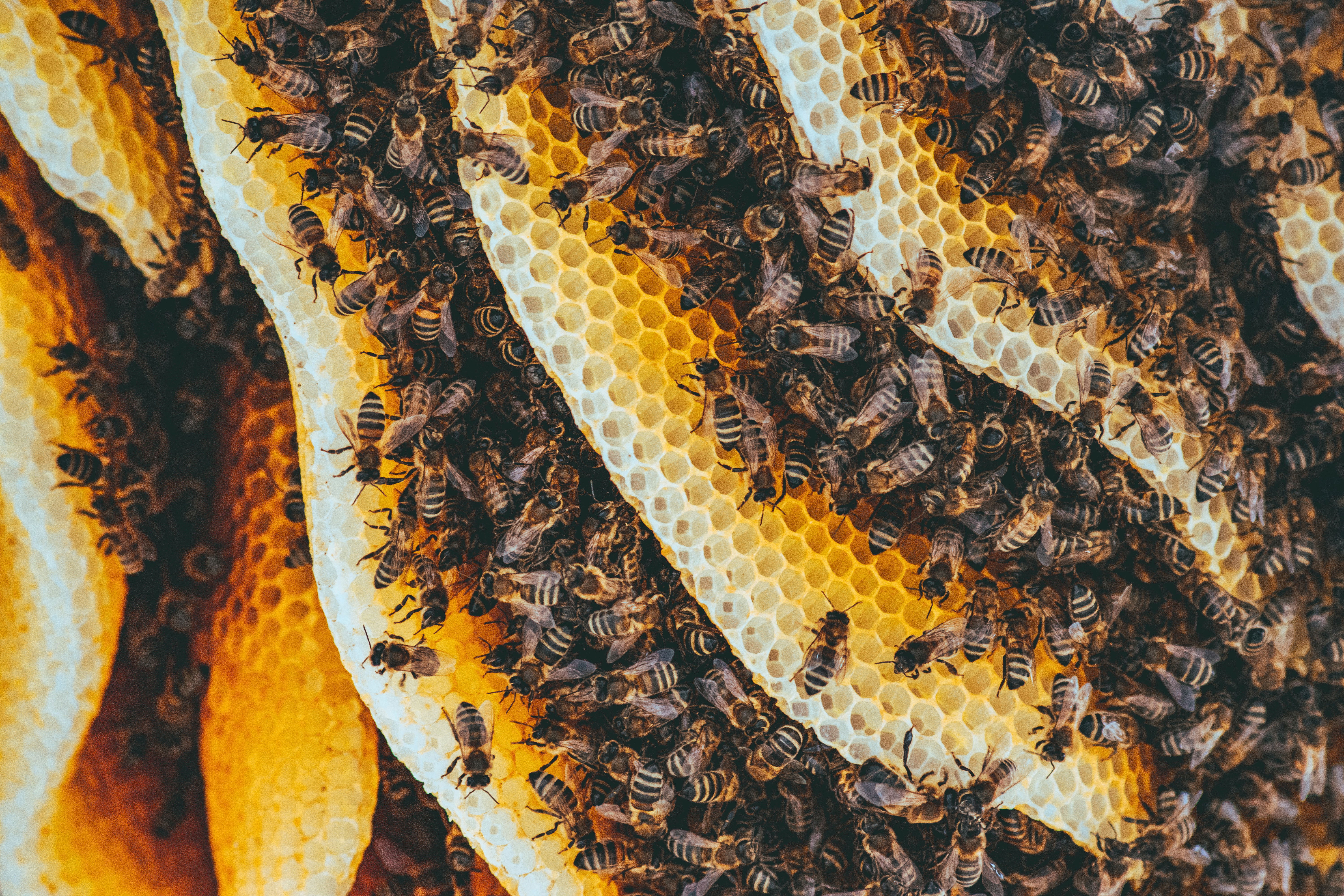Every year, May 20th is celebrated as World Bees Day to raise awareness about the importance of bees and other pollinators for our ecosystem, food security, and biodiversity. The day aims to encourage governments, individuals, and organisations to take concrete steps to protect bees and other pollinators critical to maintaining the balance of our complex ecosystem.
Bees are mostly known for their sweet extract – honey. However, bees also produce a wide range of products with immense commercial value. These include propolis, royal jelly, beeswax, and bee venom which earn income for many smallholder farmers and beekeepers. The income from bee enterprises enables smallholder farmers including herders to purchase food and medicines and pay school fees. Also, the bee products create employment for youths involved in their sourcing and primary processing in rural areas.
However, crop pollination is the biggest economic importance of bees on the planet. Over 75% of food production relies on some form of animal-mediated pollination for reproduction. Bees are the most important group of crop pollinators worldwide[1]. This is because their diet comprises predominantly of elements from flowers, and their bodies are covered with branching hairs for efficient attachment and transportation of pollen grains.
Bees are crucial for the stability of our food system. There would be a significant decline in crop production and food supply if honeybees were pushed out of the agricultural value chain. We would have a short supply of our favourite foods, including fruits, vegetables, legumes, and cereals.
Also, bees play a crucial role in the preservation of biodiversity by ensuring the survival and reproduction of many wild plants that provide food and habitat for other animals and supporting forest regeneration and sustainability which contribute to rainfall formation and ameliorate the effects of climate change.
Despite their significant contributions to nature and human existence, bees are facing numerous challenges that threaten their existence. Climate change presents an existential threat to the population of bees. The disrupted weather patterns such as heavy rains attract predators such as honey badgers while droughts damage plants that bees need to collect pollen and nectar. Also, the changing weather patterns alter plants’ flowering cycles, confusing bees, and affecting pollination and honey production. Habitat loss, pollution, pesticides, parasites, and diseases are all threatening bee populations globally.
We need to acknowledge, however, that when bees sneeze, we all catch a cold! The decline in bee populations will jeopardize their survival and pose a significant risk to livelihoods and global food and nutrition security. Therefore, we must take steps to protect bees and other wild pollinators to ensure their continued contribution to global food production and local economies.
This year’s theme “Bee Engaged – Celebrating the diversity of bees and beekeeping systems” calls us to engage with bees and beekeeping systems meaningfully and responsibly. We need to protect bees and their habitats from threats such as loss of biodiversity, climate change, habitat destruction, and the use of pesticides.
By engaging in sustainable beekeeping practices and supporting local beekeepers, we all can help to protect and preserve bees for the good of our food system, ecosystem, and future generations. We can do so by planting bee-friendly flowers and plants in our gardens, buying honey and other bee products from local beekeepers, reducing pesticide use and pollution, advocating for nature conservation policies, and getting involved with local nature conservation groups and causes. May this World Bees Day remind us of the importance of bees in our survival system!
May it be a turning point for us to reduce land degradation and loss of biodiversity and protect bees and other wild pollinators that significantly contribute to the sustainability of our food system and ecosystem. Happy World Bees Day 2023!
John Mugonya, Programme Manager (Uganda), Agripreneurship Alliance
[1] Evangelia Kagiali et al., “Four-Year Overview of Winter Colony Losses in Greece: Citizen Science Evidence That Transitioning to Organic Beekeeping Practices Reduces Colony Losses,” Insects 14, no. 2 (2023), https://doi.org/10.3390/insects14020193.
